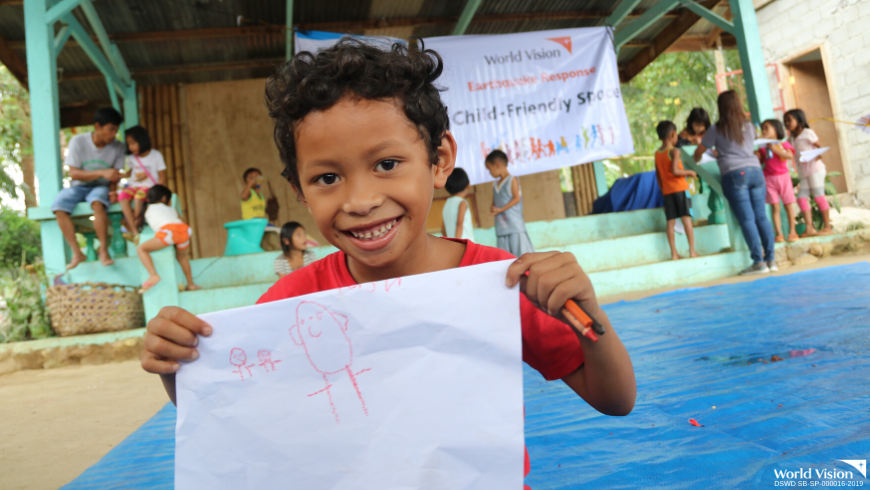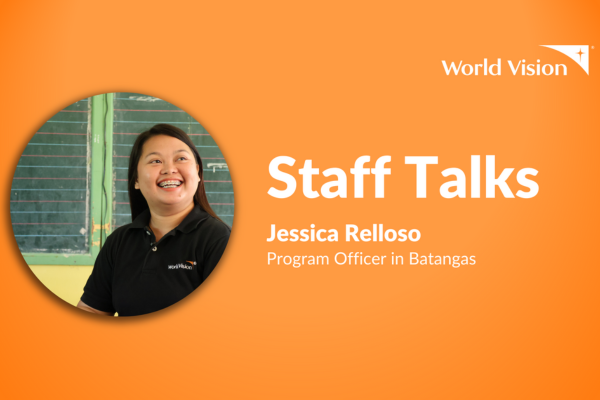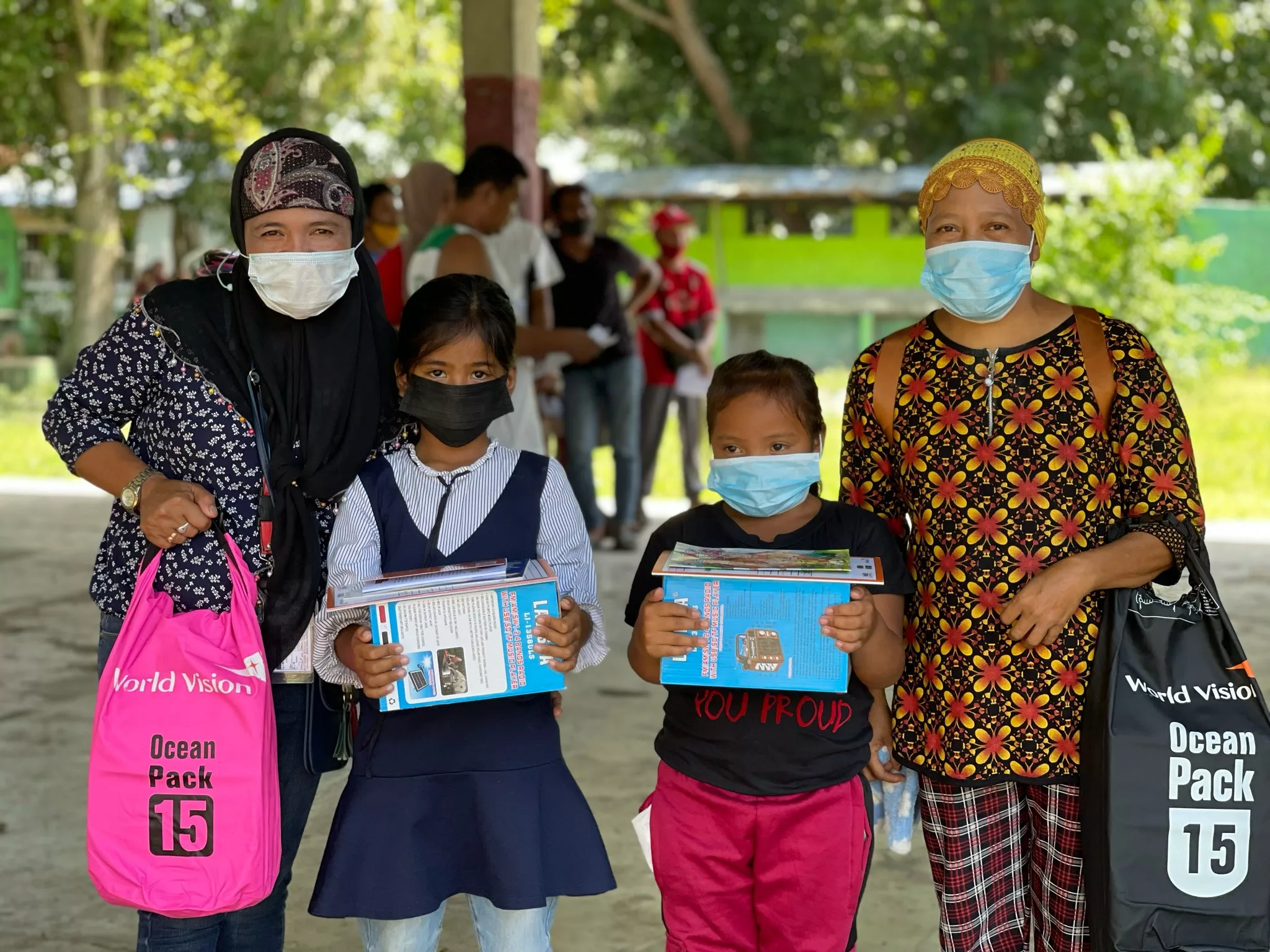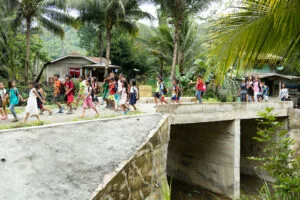Almer and other quake-affected kids receive psychosocial support
6-year old Almer grins as he shares what he drew in World Vision’s child-friendly space in a village in Kidapawan City. “That’s me giving a big smile,” he shares, his grin wider. “I’m happy joining the games and drawing and having snacks,” he adds.
November 6, World Vision started its first two psychosocial support sessions for quake-affected children in Kidapawan City. The child-friendly spaces catered to at least 250 children from two evacuation centers.
“Role plays, drawing, dancing and games are all essential in helping children cope with their situation after a disaster. These children have been through a lot in the past weeks, experiencing multiple quakes and worse, losing their sense of normalcy because of disrupted classes and damaged houses,” says Honey Joy Sampiano, World Vision’s child protection specialist.
Almer’s family, whose house was reduced to the ground, is currently sheltering in a tent within an elementary school’s compound.
“We’ve been here since the first quake in October 16 because a portion of our house was damaged. After the two other strong earthquakes, there’s no way we can repair it on our own. We need to build a new one but my husband only earns 200 each day, barely enough to sustain us. So now we’re now staying in a makeshift shelter,” explains his mother, Merlyn, adding that her children are susceptible to diseases due to lack of necessary items like tarp and extreme weather conditions.
“It gets too cold at night here but I am most worried when there is ground shaking. I still cry and look for mama every time it happens,” shares Almer who is the youngest of four siblings.
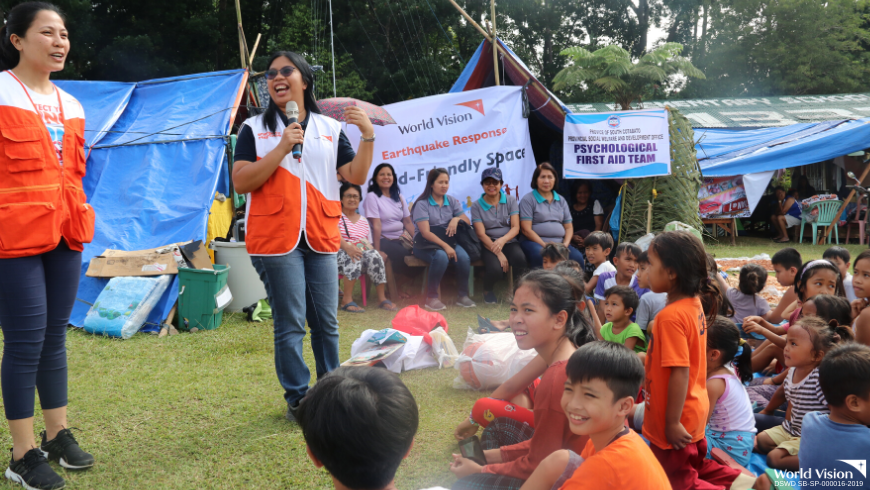
With the support of generous donors, World Vision hopes to reach more children and their families.



